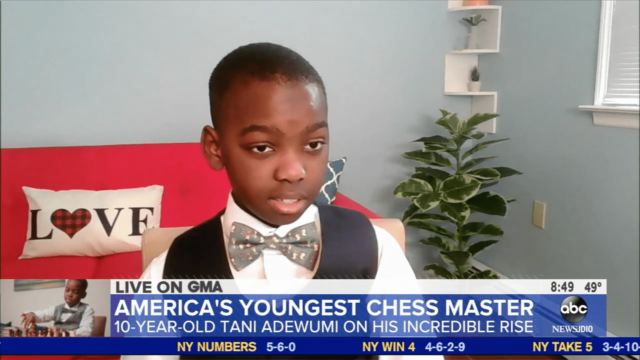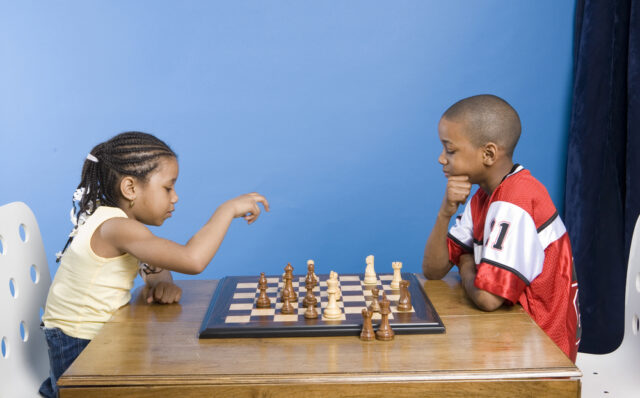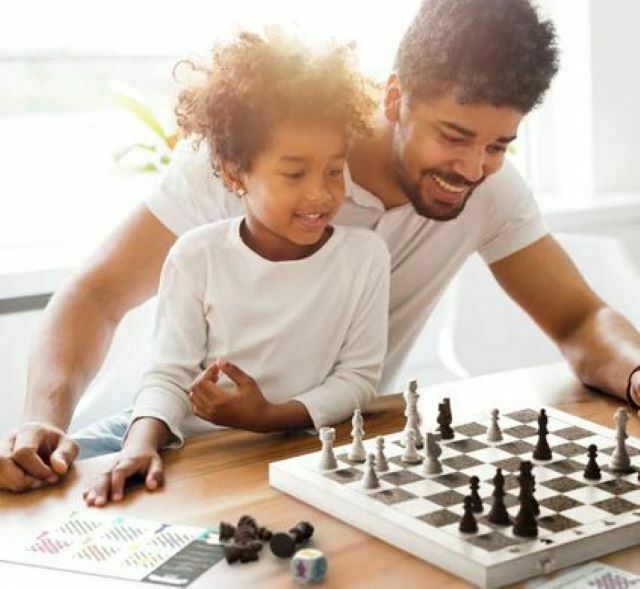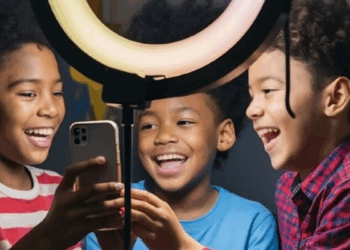According to Popular Science, teaching kids to play chess, even if you don’t know how to play, is beneficial to them on many levels. Below are five benefits of teaching kids to play chess.

According Mike Klein, International Chess Federation Master, and Chief Chess Officer for educational chess learning website ChessKid.com, learning to play the game has many cognitive benefits in addition to teaching other useful life skills such as critical thinking, resilience, perseverance, risk analysis, independence, and how to own up to and learn from mistakes. Beyond that, the game is just simply fun.
Here are additional reasons according to woochess.com, that you and your child should learn how to play chess together!
1. Learning to play chess actually grows dentrites.
Dendrites of the brain are tree-like branches that conducts signals from other neural cells into the neurons they are attached to. Learning chess, at a young age, causes those dendrites to grow, without stopping. If learning chess is a continuous activity, the growth of many dendrites will continue as well.
2. Chess play raises children’s IQ’s.
Chess is definitely the game which will help raise your kid’s IQ and it’s not a surprise. Smart people play chess. Knowing how and where to move the pieces in itself is challenging. This activity will challenge the brain and help to raise intelligence. If you want your kiddo to shine, the chess board awaits. One day, they may be just as good as Tani Adewumi.

3. Playing chess increases problem solving skills.
As a parent it is necessary to teach children stellar problem solving skills. Chess is a great way to help. When you are in check, sometimes you have to analyze and “solve the problem” not to lose the game. Checkmate is one word that no one wants to hear. Figuring out the right solution will unquestionably help you avoid that!
4. It exercises both sides of the brain.
A German study showed that when chess experts were given chess position and geometric shapes to identify, researchers expected to find the players’ left brain being more active, but the surprising thing happened when they saw that the right hemisphere of the brain was equally active as the left one. When the experts play chess they use their both sides of the brain.
When your child learns the rules and techniques to master the board, they are exercising and developing not one side of their brain, but both!

5. Chess develops and improves concentration and focus
During a chess match, the opponent won’t tell which piece they have moved; therefore, your child should be focused on the game, paying attention to every single detail, and contemplating their next move, if not two or three aheaed. Chess is the perfect way to develop and improve your kid’s concentration. This is a skill that they can use and continue to develop for a lifetime.
Ready to play? We know that we are! For more resources on how to get started, visit ChessKid.com or check out online video tutorials at Kids Academy Videos on YouTube.







